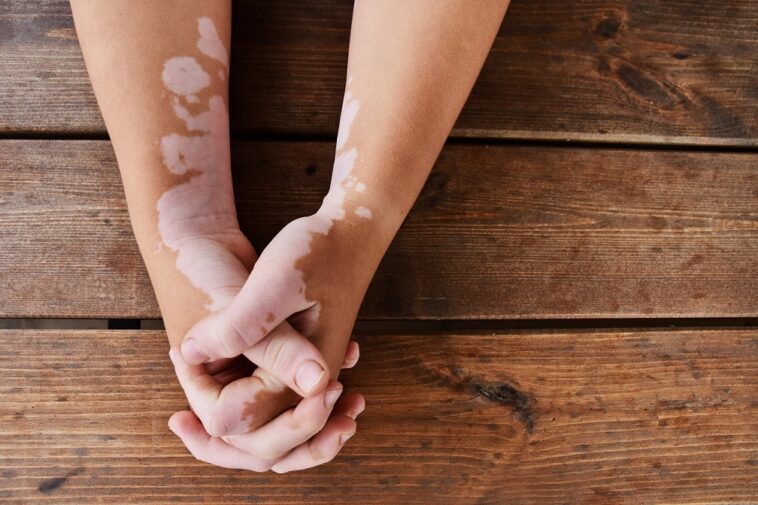In the last few years, Ginkgo Biloba (seeds and leaves) has emerged as a simple, inexpensive therapy for people with vitiligo. Ginkgo Biloba leaf, which is known to have anti-inflammatory, immunomodulatory, and antioxidant properties, is often recommended by natural therapists. The leaf extract along with seeds of the maidenhair tree has been reported to be effective in halting the progression of the skin condition in many cases. In some cases, the use of the same has even resulted in re-pigmentation.
Over the years, different studies have suggested different causes of vitiligo, including oxidative stress theory. Many studies conducted in these years seem to suggest that the cause of the skin condition is an overaccumulation of hydrogen peroxide (H2O2) in the skin, also known as oxidative stress. In many studies, low catalase is found in vitiligo patients, which triggers reactive oxygen species (ROS), accumulation of which can induce the loss of functionality of enzymes that plays a crucial role in melanogenesis.
With its anti-inflammatory, immunomodulatory and antioxidant properties, Ginkgo Biloba can potentially impact the oxidative stress mechanisms of vitiligo and relieve/pause symptoms of the skin condition. In fact, in a double-blind placebo-controlled trial conducted in 2003, the efficacy of Ginkgo biloba extract has been established in controlling the activity of the depigmentation process in some vitiligo patients with limited and slow-spreading vitiligo and in inducing repigmentation of vitiliginous skin.
Ginkgo Biloba for Vitiligo – A word of caution
It is recommended to check with your GP before starting with Gingko Biloba therapy – especially if you are on aspirin, warfarin, ibuprofen, ticlopidine, digoxin, diltiazem, haloperidol, trazodone, nicardipine, nifedipine, thiazide diuretics, tolbutamide, or valproate. Since Gingko seeds contain a higher concentration of neurotoxin when compared with Gingko Biloba leaves, it is also suggested to read labels carefully before making a purchase.
So far, no recognized guidelines have been set for the maximum daily dosage of Gingko Biloba for the treatment of vitiligo. Some manufacturers recommend twice-daily intake of 120 mg of standardized Gingko Biloba with the meal, for the continuous course of 12 weeks or longer while some suggest patients watch their allergic reaction and modify the intake accordingly. Consulting a medical practitioner can help avoid self-medication due to a potential augmented effect.

